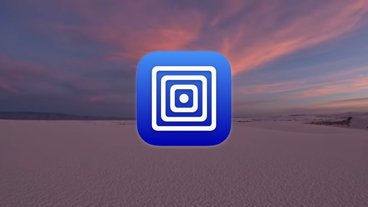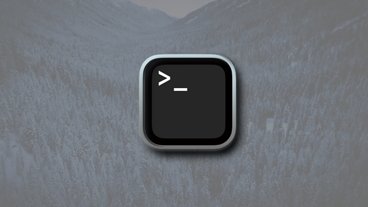Apple's newest operating system, OS X 10.8 Mountain Lion, accounted for more than 32 percent of all internet traffic originating from Apple computers in December, and is nearly doubling the growth seen previously by OS X 10.7 Lion, a recent study found.
Five months after rolling out, Apple's OS X 10.8 Mountain Lion has outstripped the monthly internet share of its predecessor OS X 10.7 Lion, reports web statistics firm Net Marketshare (via TechCrunch), a feat that took Lion nearly ten months to accomplish.
In November, Mountain Lion was nipping at the heels of Lion, both of which were in the 29 percentile range with a difference of only 0.49 percent. OS X Snow Leopard
Data for the intervening months since Mountain Lion was released in July show the OS accounting for a 24.7 percent internet share, third among Mac operating systems behind the installed base of Snow Leopard and Lion, which garnered a 31.62 percent share and 32.14 percent share, respectively.
With the requirement to have Lion running in order to install Mountain Lion, the data suggests a healthy upgrade cycle for many Mac users who either already have the latest OS or are primed to download it through the Mac App Store.
As for overall internet share in December, Microsoft's Windows is the clear leader with Windows 7's 45.11 percent share followed by a 39.08 share for Windows XP. Windows Vista continues to lose ground with 5.67 percent, but still managed to double Apple's Mountain Lion which accounted for a 2.27 percent share. OS X 10.7 Lion and 10.6 Snow Leopard trailed with roughly 2 percent each, while Windows 8 finished the month with a 1.72 percent share, just ahead of Linux machines.
 AppleInsider Staff
AppleInsider Staff








 Malcolm Owen
Malcolm Owen
 Charles Martin
Charles Martin



 William Gallagher
William Gallagher
 Christine McKee
Christine McKee
 Marko Zivkovic
Marko Zivkovic









62 Comments
What is Windows 8 up to now?
What is Windows 8 up to now?
Probably more than all versions of OS X combined.
Not surprising, considering Lion was the Vista of OSX. That was the first time I've ever downgraded to a previous version after upgrading my Mac.
Not surprising, considering Lion was the Vista of OSX.
In what way?
What is Windows 8 up to now?
It said about 1.8%, but I think these guys are doing internet traffic, not actual users. The thing that is kind of misleading is that just because someone bought WIndows 8, they might have installed it and then realized it sucks and then went back to Windows 7.. I don't know how ANY of these market research companies can accurately tell us anything, and Microsoft might be including Windows 8 users as follows: Let's say someone buys WIndows 8 Home and then upgrades it to Professional. Does Microsoft calculate this as ONE licenses or TWO to make people THINK they have larger user base?
They said recently that there is 1 Billion WIndows 7 users, but if WIndows 7 is about 50%, then there would be about 2 billion Windows users, but there aren't. Would someone that has two computers, both running Windows 7 (one computer doesn't really work and the other does), Microsoft will calculate this as TWO users or TWO licenses? There are a LOT of users that have more than one computer regardless of OS. Heck some kids have more than 2 or 3 for that matter.